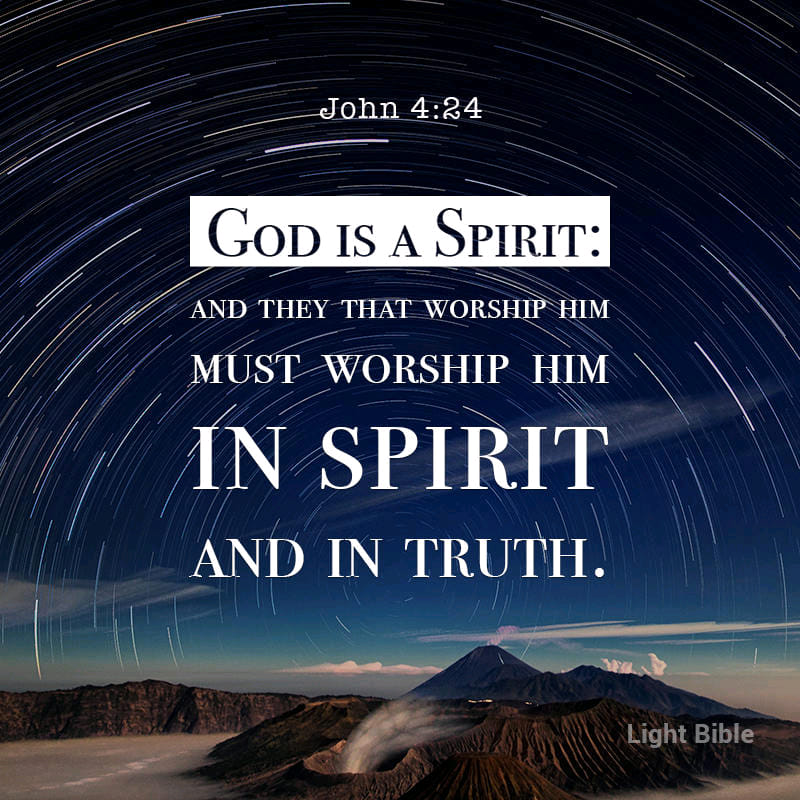
Psalms 95:6-7 NIV
Come, let us bow down in worship, let us kneel before the LORD our Maker; for he is our God and we are the people of his pasture, the flock under his care.
God made humans to bring glory to Him and enjoy a relationship with Him; we are made to worship. In the Garden of Eden, Adam and Eve rejected this purpose and it has been a cycle since then. Throughout history, humans have worshipped themselves and the created world instead of their creator. God’s work of redemption creates a group of people who worship Him. Just as God led the Israelites out of Egypt so that they might worship and serve Him, He calls Christians to live for His glory (Ephesians 1:12) and the Church to be a worshipping community (Hebrews 12:28). In doing so, Christians join in the worship of God happening in Heaven (Revelation 4:8-11). The Bible teaches Christians how to worship God, with an emphasis on worshipping Him in the correct ways and in the correct mindset. We are to worship God in spirit and in truth (John 4:24).

Worshipping God in truth means worshipping in the ways God desires. The punishments that fell upon Aaron’s sons (Leviticus 10:1-2) and Uzzah (2 Samuel 6:5-9) reflect how serious God takes irreverent worship. Thus, much of the Old Testament is a description of the ways that the nation of Israel should worship Him. Included in these regulations of the Old Testament worship were the Sabbath (Exodus 20:8-11), annual feasts like the Passover and the Feast of Tabernacles, the sacrificial system, purity laws, a proper place of worship (Jerusalem), and proper leaders of worship (the priests).
The New Testament shows that Jesus fulfilled and transformed these requirements as he fulfilled the Law and is greater than the temple. So the church is not bound to things like the Jewish calendar, worship in Jerusalem, sacrifices, and purification and kosher laws; those things were a shadow and antitype of the things that came in Jesus (Hebrews 7-10). This does not mean that the commands of God have been loosened; instead, they have been transformed. For example, the Sabbath is a day to rest and a day to do good, and instead of offering daily sacrifices, we offer up sacrifices of praise (Hebrews 13:15-16) and live as sacrifices (Romans 12:1).

We also need to worship with the proper attitude. Our worship must be done in the right attitude and condition of our hearts (Jeremiah 7:21-26; Hosea 8:11-13; Amos 4:4-13). In New Testament times, Jesus also spoke on it in His ministry (Matthew 21:12-17) and the Apostle Paul expressed similar concerns in his writings, as he wants the Church to do what is proper in practise (1 Corinthians 11), noting that worship should be orderly (1 Corinthians 14:33), and people should pay attention to their hearts (1 Timothy 2:8). Jesus’ words in Matthew 5:23-26 show that an improper condition of a person’s heart hinders his or her worship.
Christians need to remember these principles as they gather for public worship. Ultimately, the services should focus on God and what He has done, not just the desires and thoughts of the people. The ultimate picture of God and His work is Jesus Christ, so worship should focus on Him. Furthermore, we do not just worship when we gather together with other Christians, sing, listen to preaching; worship is something that encapsulates all of life.

A vital element of worship is that it is in fact a service to God (Deuteronomy 10:12-13). Therefore, biblical worship happens by recognizing that the Creator, not the creation, is to be worshipped in word and in deed and in spirit and truth; obedience to God is an essential part of worshipping Him, the very purpose of human existence.

This reflection is guided throughout by a book on Biblical concepts published by Barbour Publishing.
|Share The Good News|




Leave a Reply